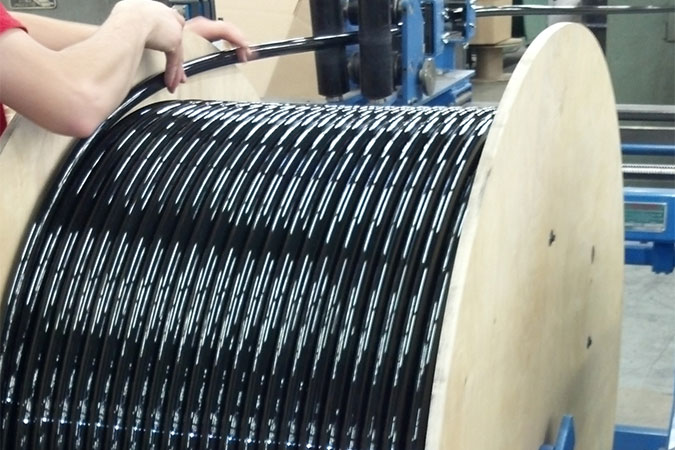Nylon
Nylon is a semi-crystalline plastic, that it has both amorphous (unstructured) as well as crystalline (structured) regions.

What is Nylon?
Nylon is a thermoplastic made from petrochemicals and is one of the most widely used and versatile thermoplastic resins.
Its combination of physical properties and reasonable price make it useful for numerous applications. Nylon is used for making plastic machine parts as it is low-cost and long-lasting.
Nylon can withstand repeated flexing and is available in a range of grades, from flexible to semi-rigid to rigid. The material enjoys a higher heat deflection temperature than polyurethane, as well as better chemical resistance and higher working pressure. Polyurethane and nylon both provide excellent abrasion resistance, offering protection from oils and fuel.
In terms of crack resistance, nylon takes the cake and serves as something of a standard for industrial applications that require increased heat and chemical resistance. When heat is applied, it does not begin to slowly melt like amorphous resins, rather it stays firm until it reaches its melting point and then melts all at once. Nylon has a relatively high melting temperature of 256°C/450°F.
Have any questions about our usage of nylon in plastic extrusion? Let us know!




